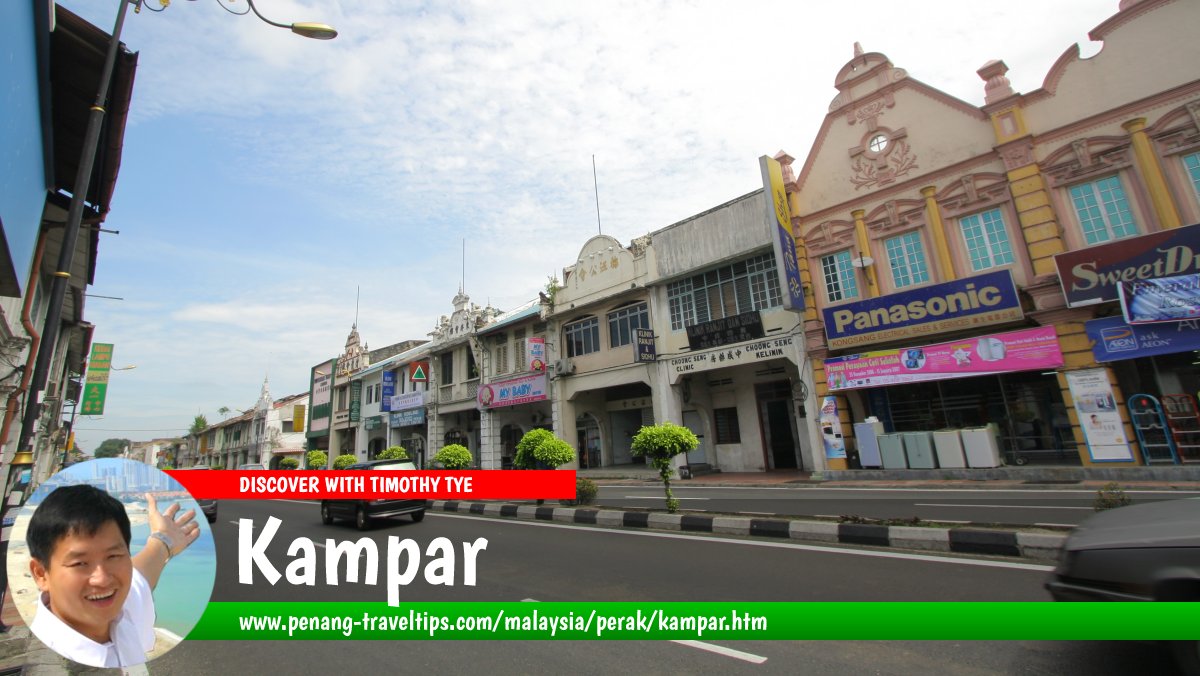 Kampar (28 December 2006)
Kampar (28 December 2006)
Kampar (GPS: 4.30567, 101.15215) is a town in Perak, Malaysia. Located south of Simpang Pulai, it has a population of 68,000 people, the majority of which are Chinese. There are also Malays and Indians staying there, in addition to a sizable Punjabi community.
Kampar was founded in 1887 as a tin-mining town. It was originally called Membang Di Awan. On 13 March 1894, Membang Di Awan was renamed Kampar. This was confirmed by E.W. Birch, the then Secretary to the Government.
There are a few theories to this name Kampar. Due to its rich tin reserve, Kampar is believed to have been named after the Cantonese words "kam pou", which means "precious gold". On the other hand, there is also another theory that Kampar was named after the river Kampar which flows through the town.
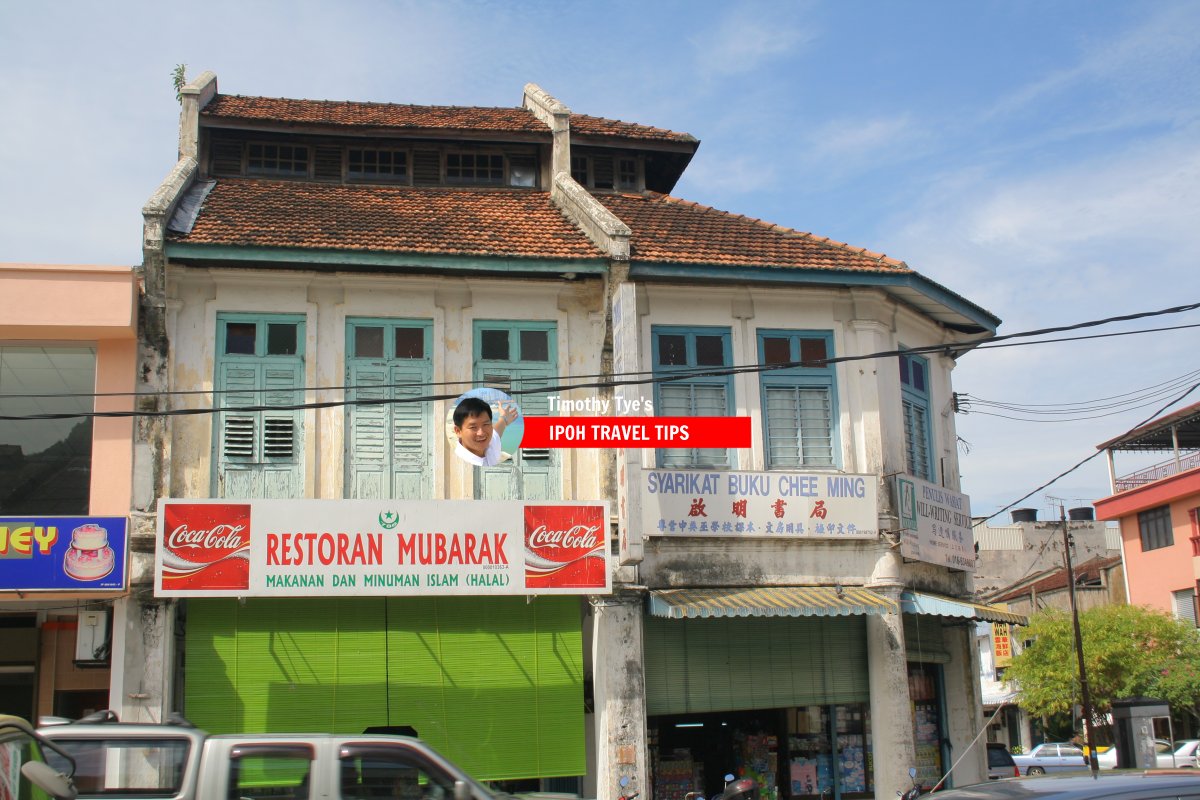 Corner shophouse at junction of Jalan Idris and Jalan Ampang (GPS: 4.31394, 101.15215). Both businesses are still around, as of Aug 2017. (28 December, 2006)
Corner shophouse at junction of Jalan Idris and Jalan Ampang (GPS: 4.31394, 101.15215). Both businesses are still around, as of Aug 2017. (28 December, 2006)
The river was named by settlers from Riau Province, Sumatra, after the Kampar regency there. This is where the first Sultan of Perak, Sultan Mudzaffar Shah, was based before he becoming the Sultan in Perak. As the Kampar River has already been around before Kampar town was established, it is more likely that the town was named after the river than the other way around, and that the Cantonese name is simply a transliteration of the name Kampar.
As with many of the tin-mining towns in Perak, Kampar's fortune followed the ups and downs of the tin mining industry. The town prospered at the turn of the 20th century when tin prices were high. It began to stagnate and decline after World War I. By the 1980's, with the last of Kampar's tin mines having closed down, the town itself was pretty much dead. It was only recently that the town became to be revived, driven partly by the arrival of the new Universiti Tunku Abdul Rahman (UTAR) campus and the opening of the Tesco hypermarket in September 2008.
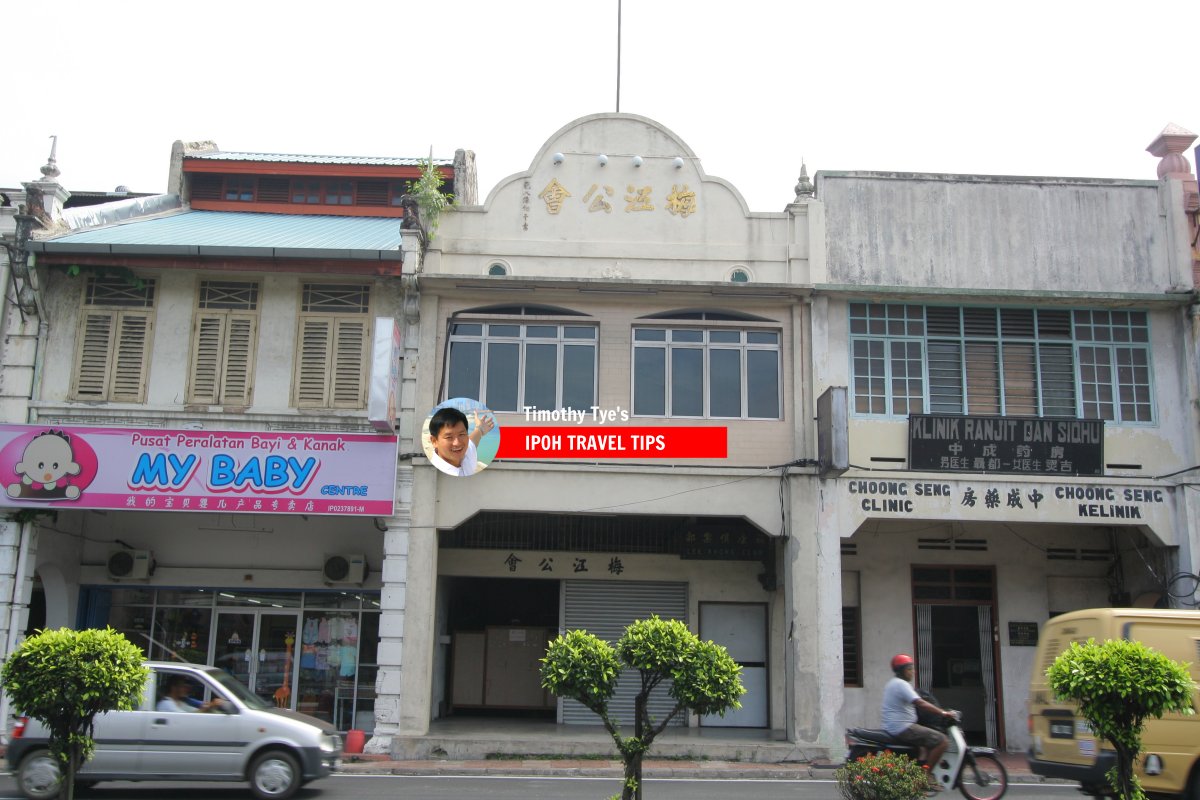 One of many Chinese associations in Kampar. (28 December, 2006)
One of many Chinese associations in Kampar. (28 December, 2006)
The construction of the North-South Expressway bypassed Kampar, hastening its economic decline. Perhaps on the positive side, it also helped preserve Kampar's pre-war houses until such time when the population becomes more appreciative of its heritage architecture.
While people might not generally be interested in the shophouse architecture, many certainly know Kampar as a place to get good food. There is plenty to choose from. Among these, perhaps the most famous are the Kampar Chicken Biscuit, the Roti Ayam and the Kampar Fish Ball Noodles.
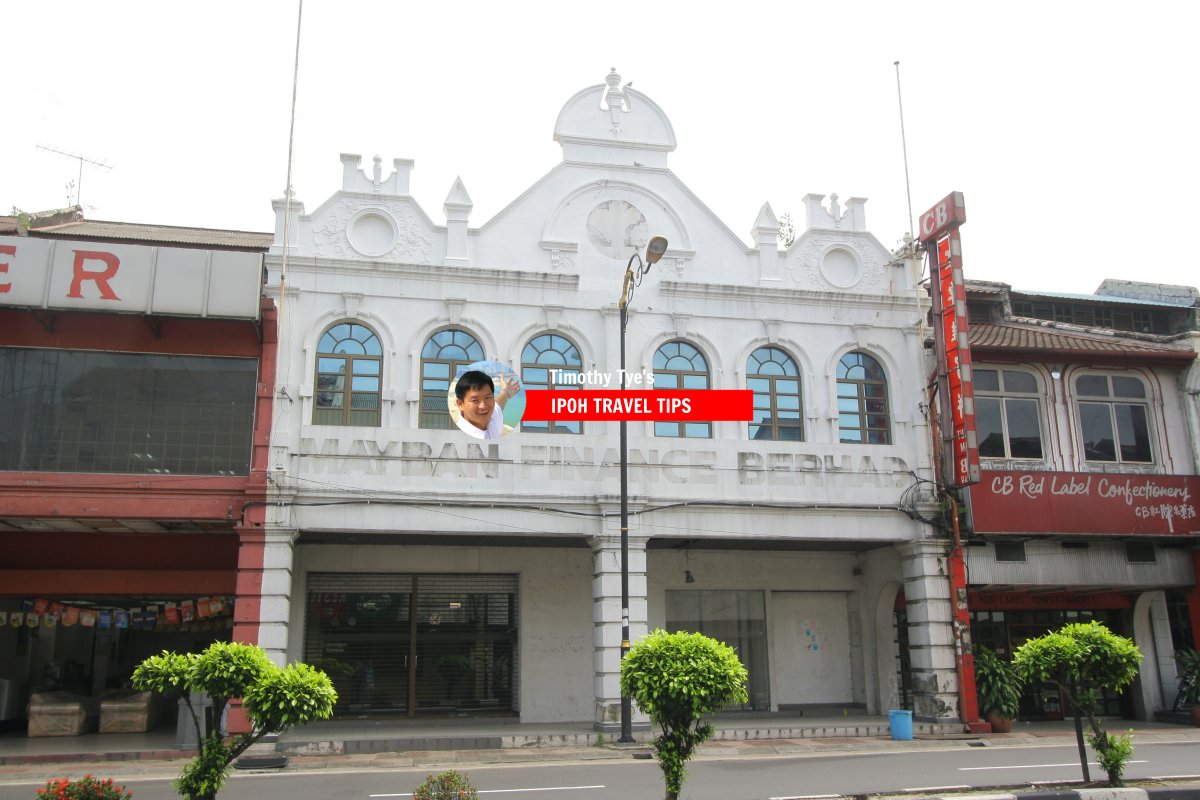 Beautiful pre-war building in Kampar. (28 December, 2006)
Beautiful pre-war building in Kampar. (28 December, 2006)
The Kampar Chicken Biscuit is so famous that it is now available throughout Perak, and even in Penang. It came from a recipe brought from China three generations ago. From the one recipe, there are now two companies producing the chicken biscuits - they are both produced by brothers who separated over irreconcilable differences; they created CB chicken biscuit brand and the May Moon chicken biscuit brand respectively.
The Roti Ayam or Min Pau Kai is a Kampar innovation of chicken within bread. There is a choice of two types of chicken filling, one done in curry and another in herbal soup.
The Kampar Fish Ball Noodles is called Lor Shee Fun in Cantonese. Literally, it means "Mice Noodles" because the noodles resemble mouse tails. The specialty of this dish is its deep-fried fish balls, called chau yuen, which makes the stall selling it stand out.
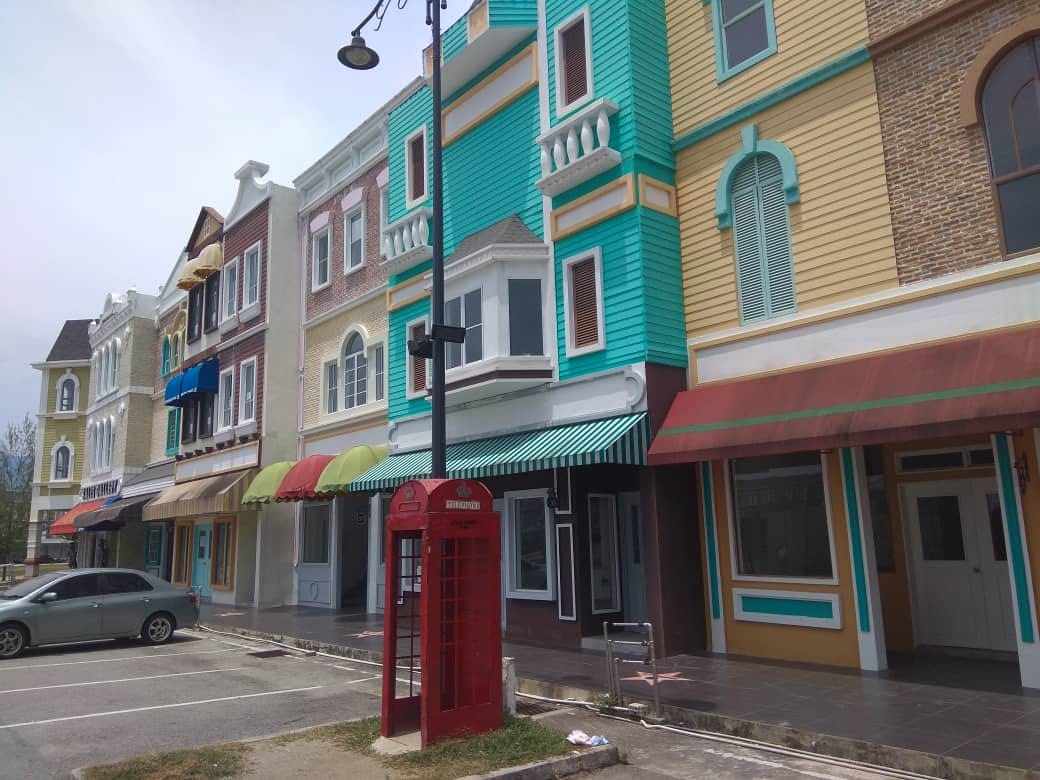 Castle Avenue in Disney Town, Kampar (GPS: 4.321351, 101.125353; street view)
Castle Avenue in Disney Town, Kampar (GPS: 4.321351, 101.125353; street view)© Shane Tan
Map of Kampar, Perak
Sights in Kampar
- Kampar Chinese Temple (GPS: 4.31322, 101.15381)

- Kedai Biskut Kampar (GPS: 4.31322, 101.15222)

- Kinta Toong On Association Kampar (GPS: 4.31417, 101.15214)

- Koo Kong Chow Association (GPS: 4.31334, 101.15335)

- Restoran Roti Ayam Yau Kee (GPS: 4.31166, 101.15237)

- Restoran Wing Lok Yuen (GPS: 4.31417, 101.15214)

- Tseng Lung Fui Kuon Association (GPS: 4.31417, 101.15214)

- Wisma Tamil Methodist (GPS: 4.31245, 101.15341)

Restoran Roti Ayam Yau Kee 
Restoran Roti Ayam Yau Kee is possibly the most famous eatery in Kampar. For as long as I can remember, this coffee shop sells its speciality, which is chicken in a loaf. The shop was originally located at the junction of the Kampar Main Road with Jalan Ampang (GPS: 4.31433, 101.15283), but relocated to its present spot (as of Oct 2018) to the corner of Jalan Idris with Jalan Balai (GPS: 4.31166, 101.15237) Photos below were taken at its previous location.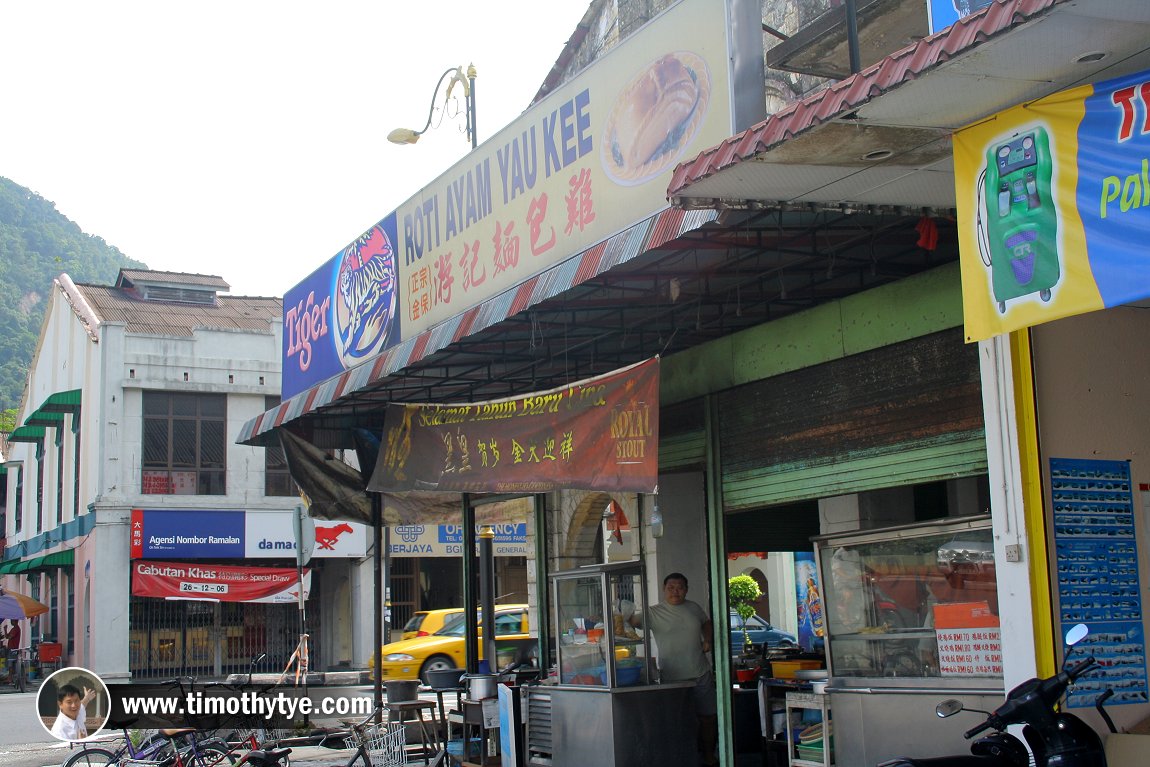 Roti Ayam Yau Kee, Kampar (28 December, 2006)
Roti Ayam Yau Kee, Kampar (28 December, 2006)
Kedai Biskut Kampar 
Kedai Biskut Kampar is immensely popular with local Chinese travellers, particularly ladies, who stop over here to purchase local puff pastries. The shop has been in the same spot as of Aug 2017.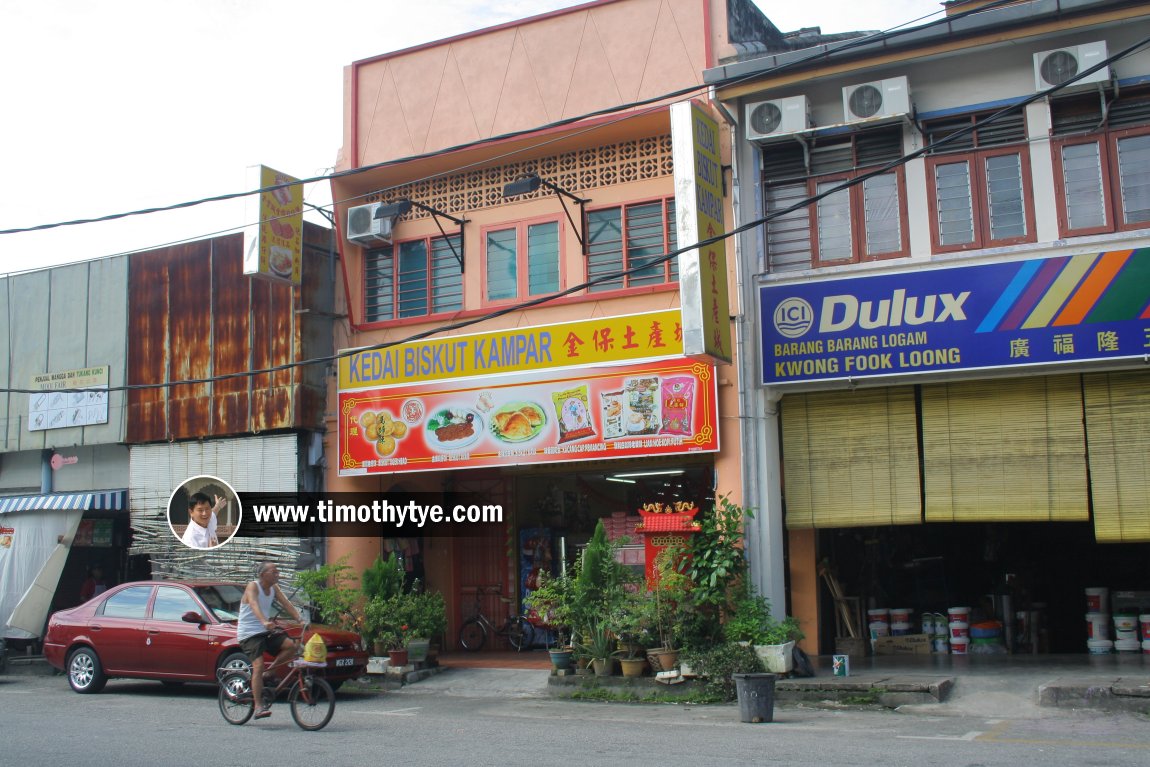 Kedai Biskut Kampar (28 December, 2006)
Kedai Biskut Kampar (28 December, 2006)
Kampar Chinese Temple 
Kampar Chinese Temple is a large temple in the heart of Kampar. It has a large compound facing the Kampar Main Road (Federal Route 1). Right across from the temple is Jalan Tokong, a road that is laid out to form an avenue from the temple. The temple itself is on an elevation with a series of staircase leading up to it.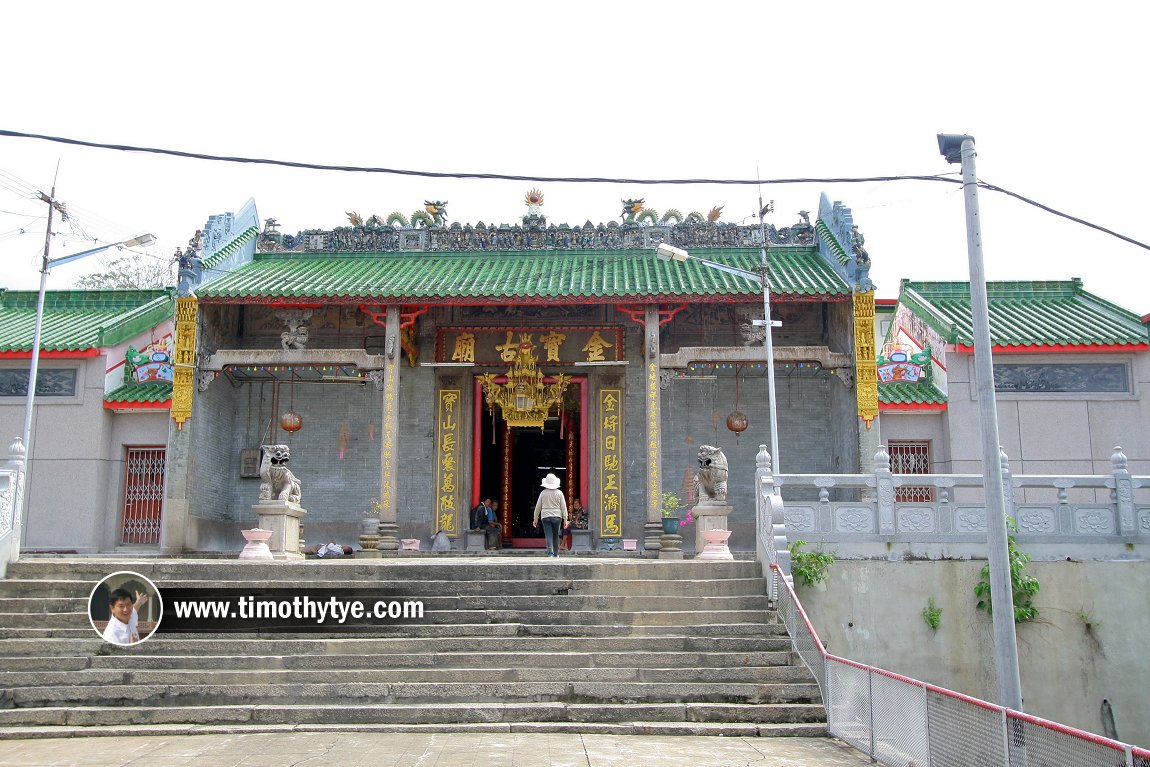 Kampar Chinese Temple (28 December, 2006)
Kampar Chinese Temple (28 December, 2006)
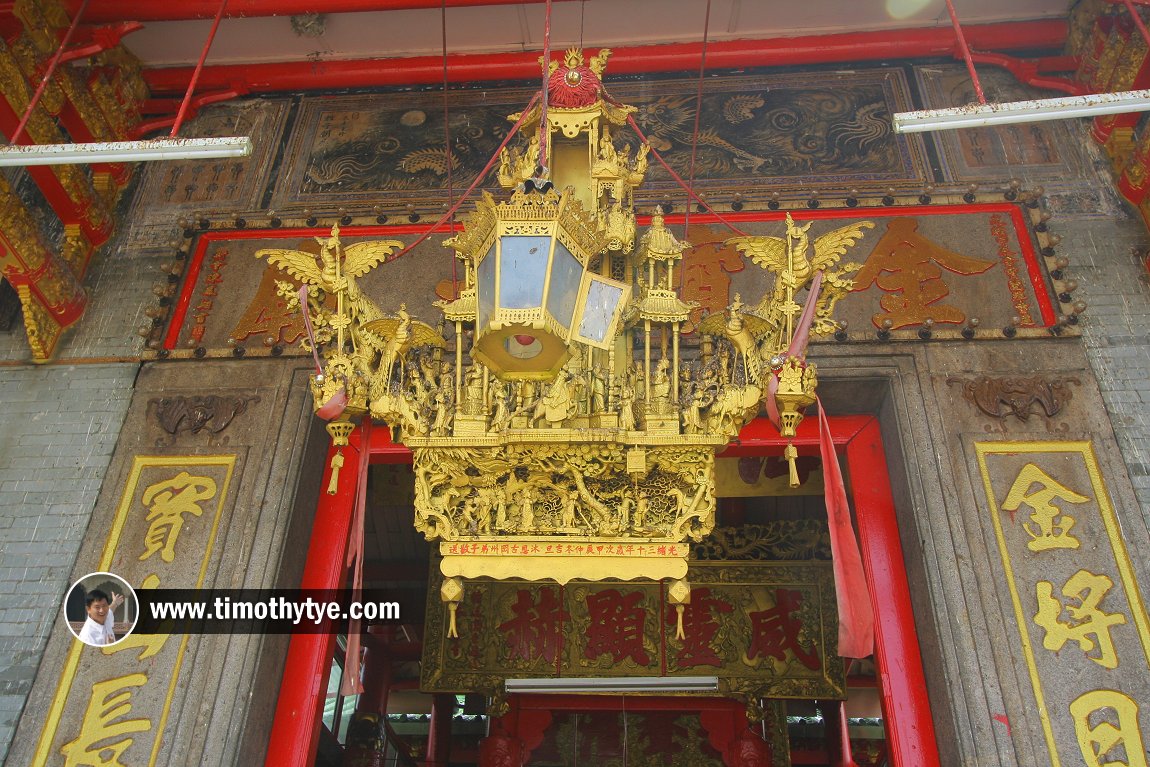 Intricate gilded ornamentation over the front entrance of Kampar Chinese Temple (28 December, 2006)
Intricate gilded ornamentation over the front entrance of Kampar Chinese Temple (28 December, 2006)
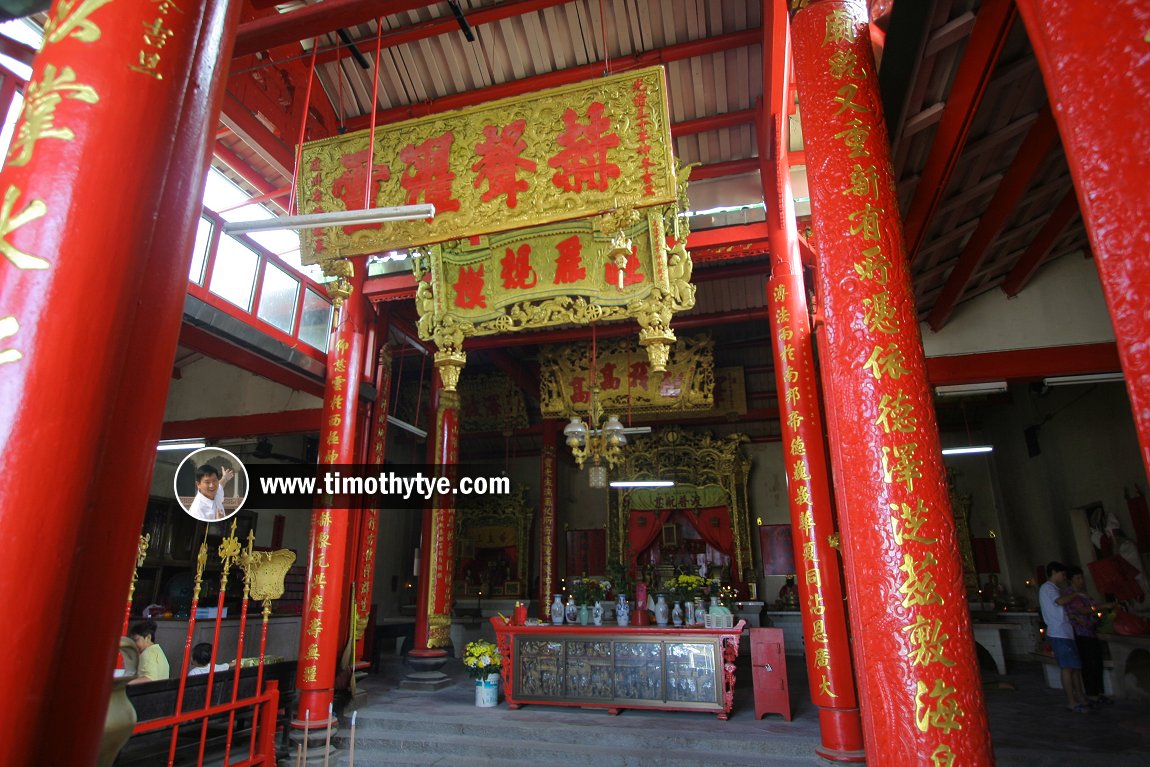 Prayer hall of Kampar Chinese Temple (28 December, 2006)
Prayer hall of Kampar Chinese Temple (28 December, 2006)
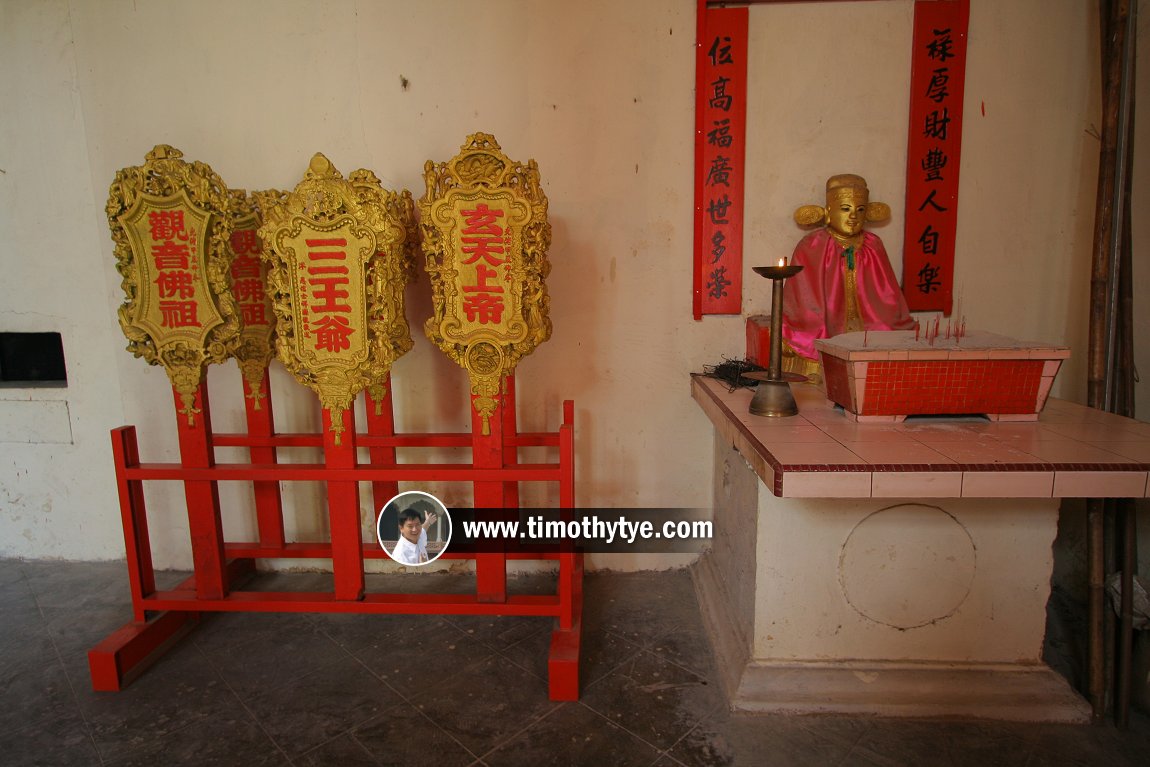 Ceremonial parade banners and side altar inside Kampar Chinese Temple (28 December, 2006)
Ceremonial parade banners and side altar inside Kampar Chinese Temple (28 December, 2006)
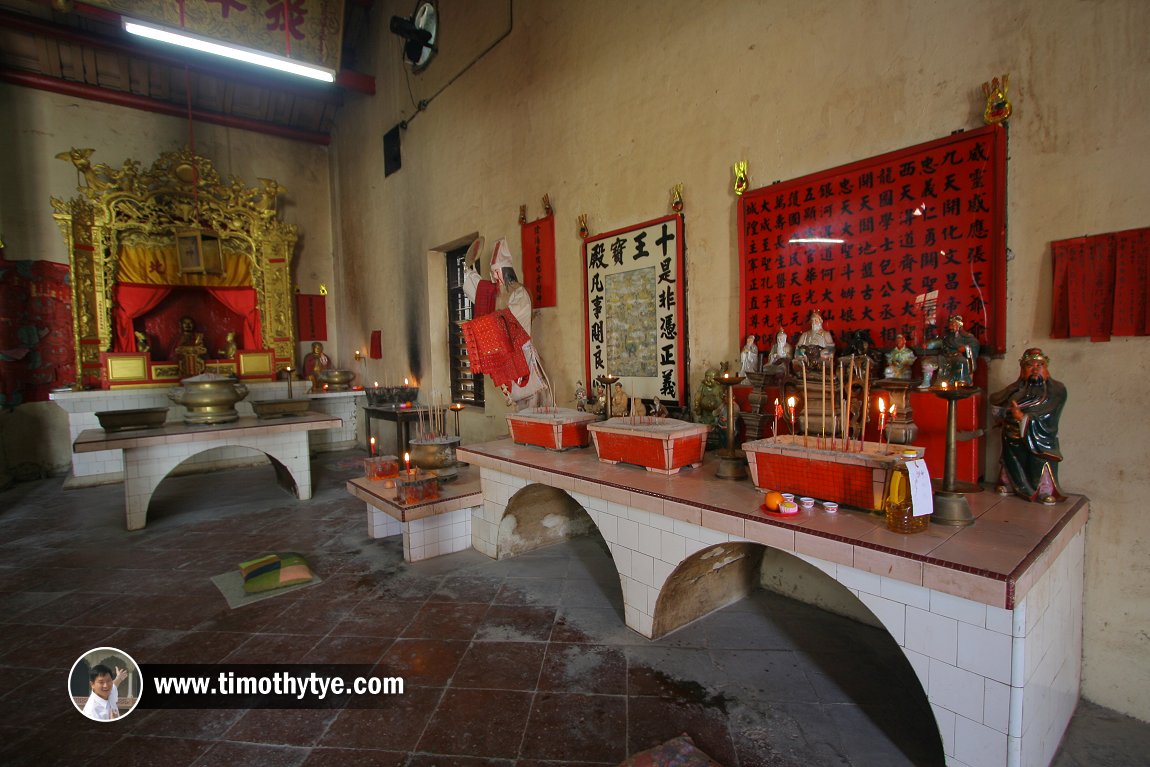 Altars inside Kampar Chinese Temple (28 December, 2006)
Altars inside Kampar Chinese Temple (28 December, 2006)
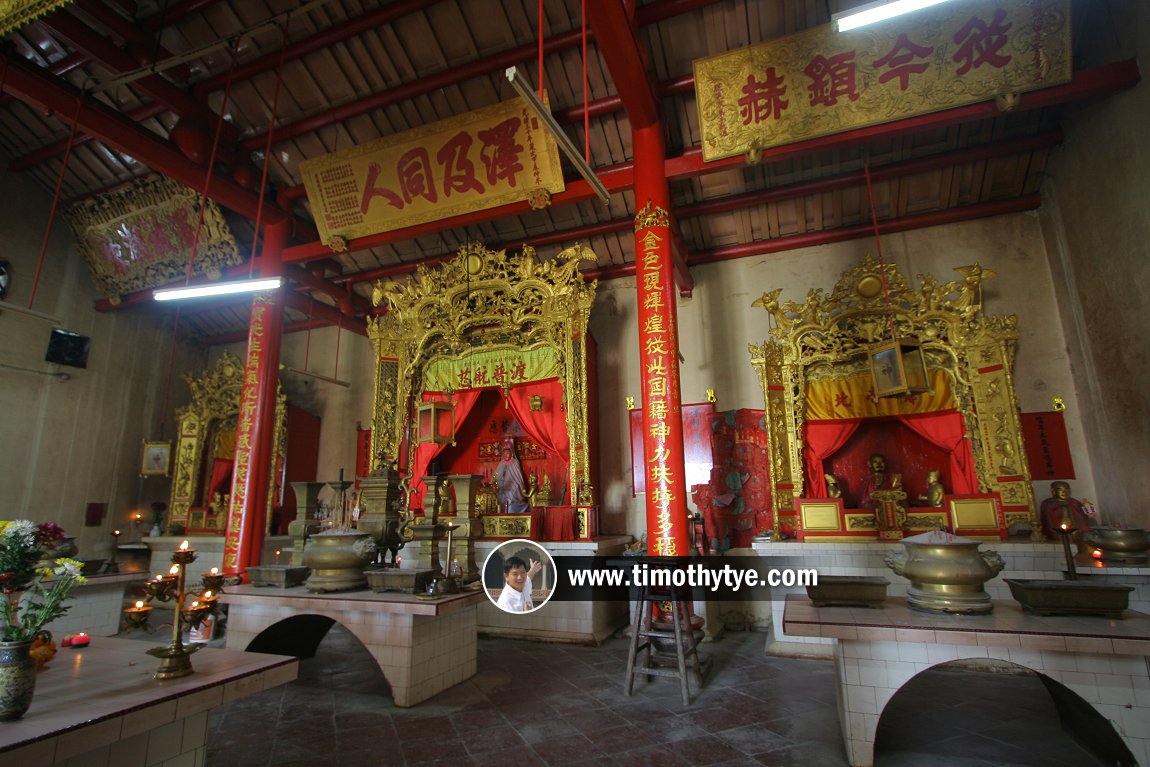 Main altars of Kampar Chinese Temple (28 December, 2006)
Main altars of Kampar Chinese Temple (28 December, 2006)
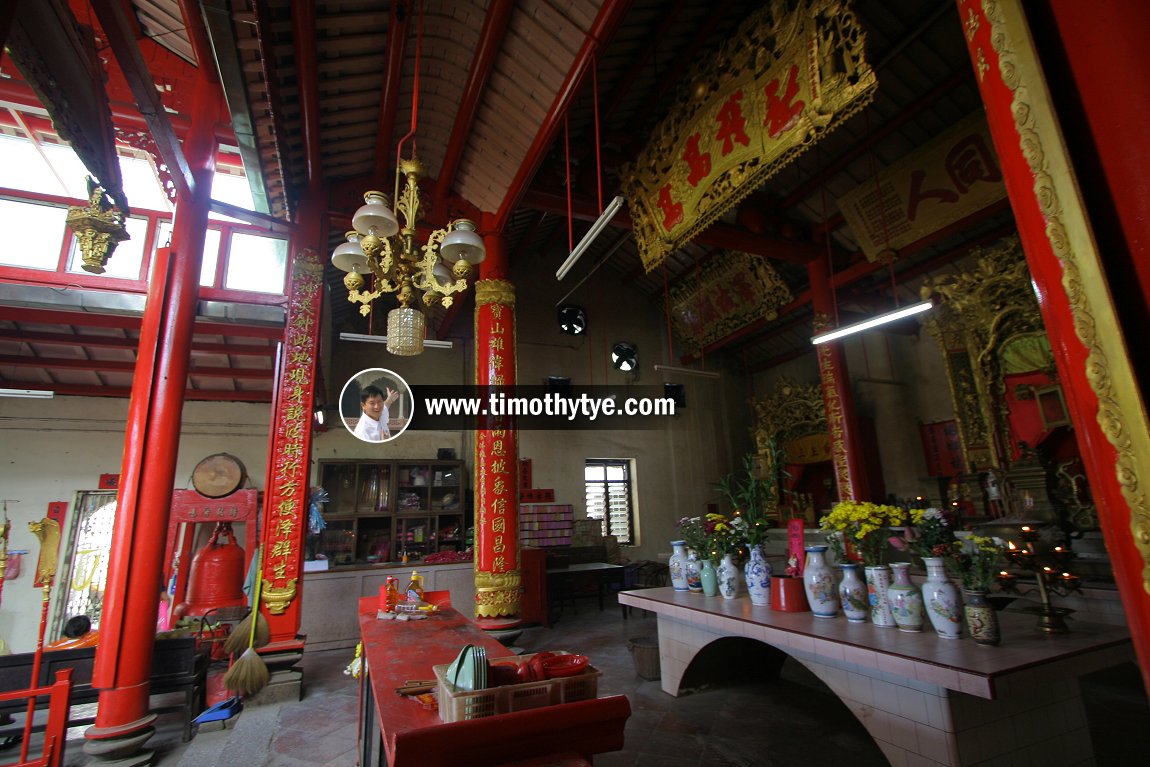 Prayer hall of Kampar Chinese Temple (28 December, 2006)
Prayer hall of Kampar Chinese Temple (28 December, 2006)
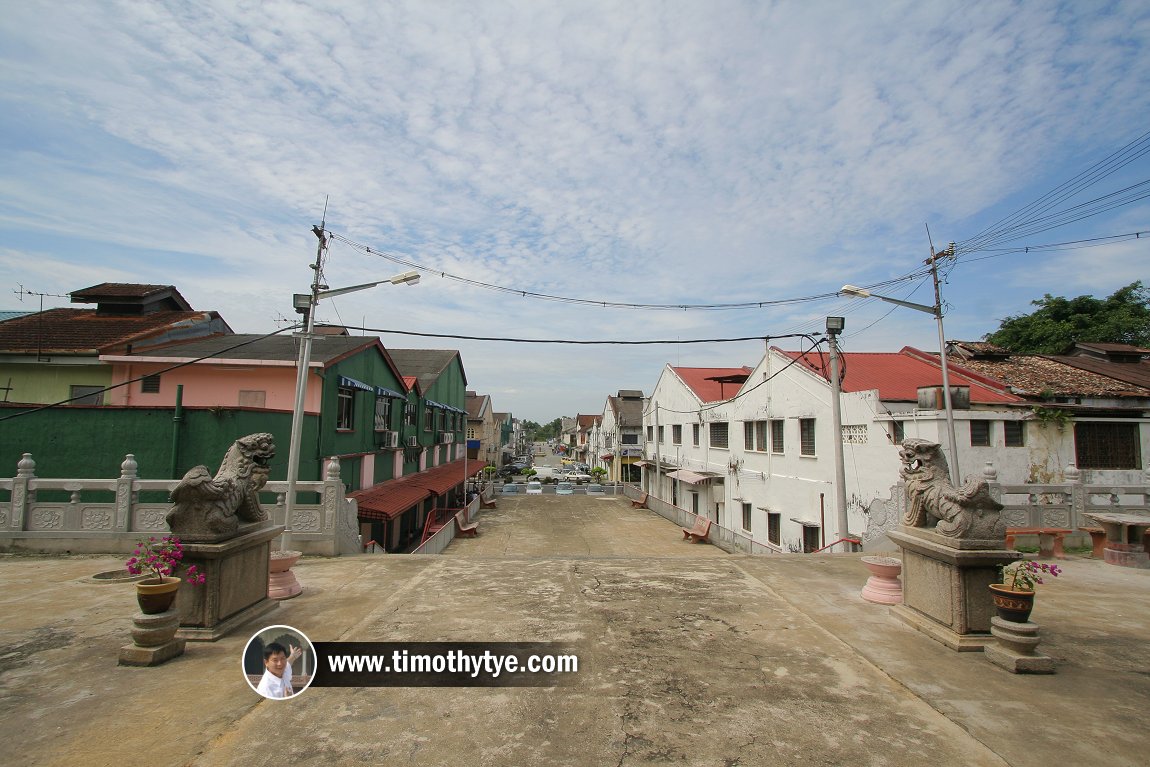 Front courtyard of Kampar Chinese Temple with Jalan Tokong extending beyond it. (28 December, 2006)
Front courtyard of Kampar Chinese Temple with Jalan Tokong extending beyond it. (28 December, 2006)
Other sights in Kampar
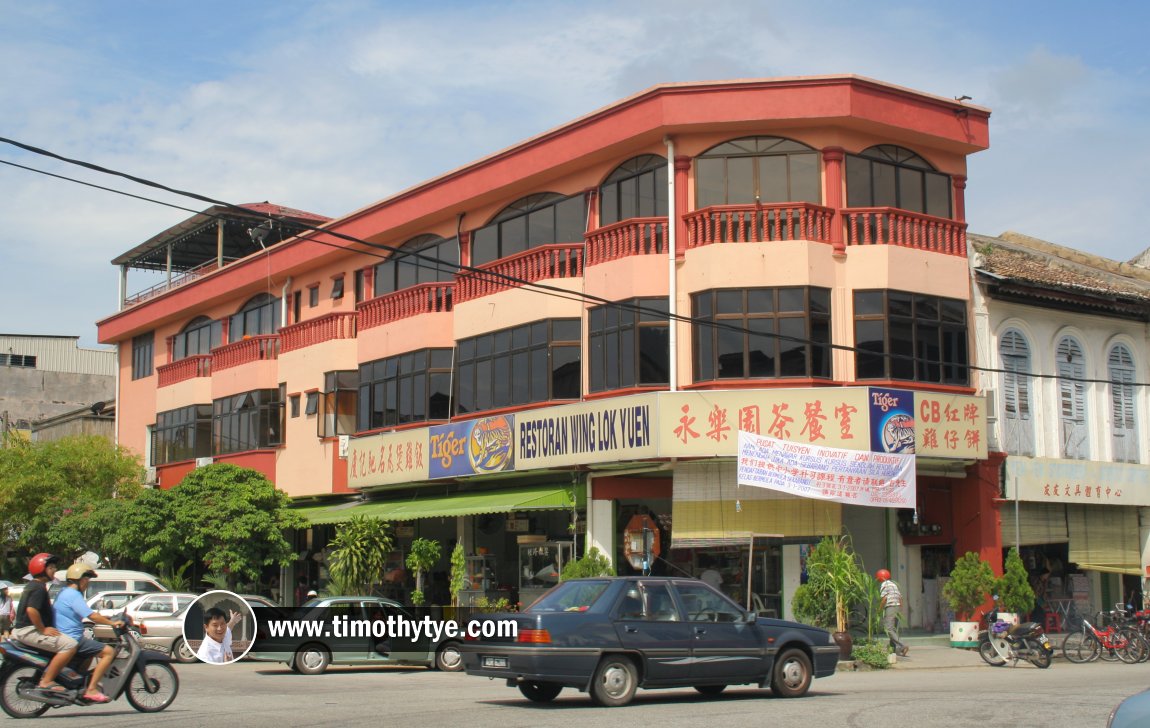 Restoran Wing Lok Yuen, Kampar
Restoran Wing Lok Yuen, Kampar  (28 December, 2006)
(28 December, 2006)
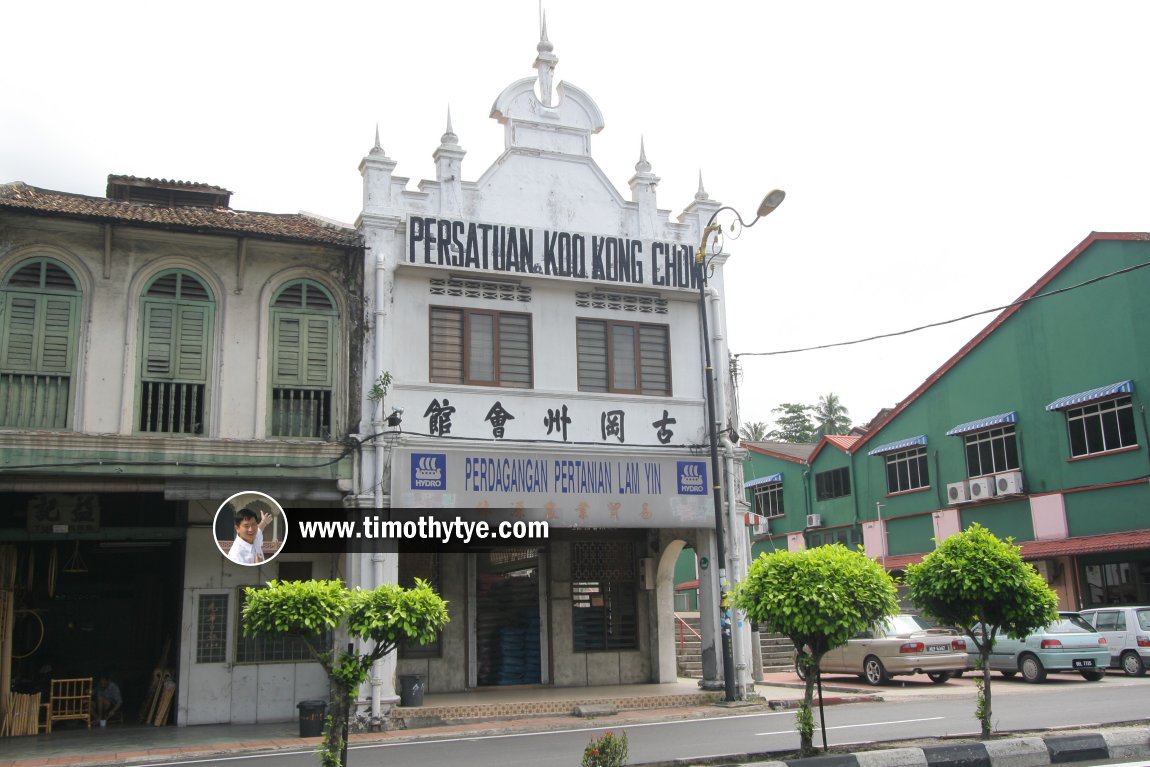 Koo Kong Chow Association, Kampar
Koo Kong Chow Association, Kampar  (28 December, 2006)
(28 December, 2006)
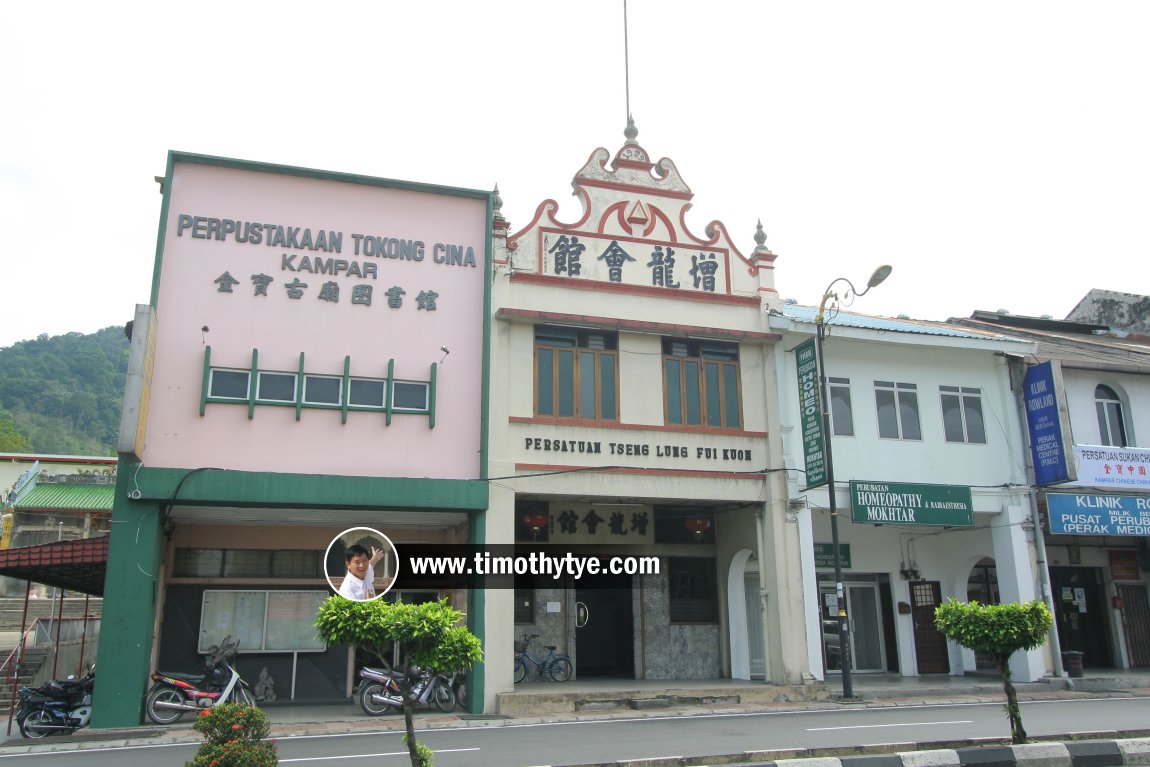 Tseng Lung Fui Kuon Association, Kampar
Tseng Lung Fui Kuon Association, Kampar  (28 December, 2006)
(28 December, 2006)
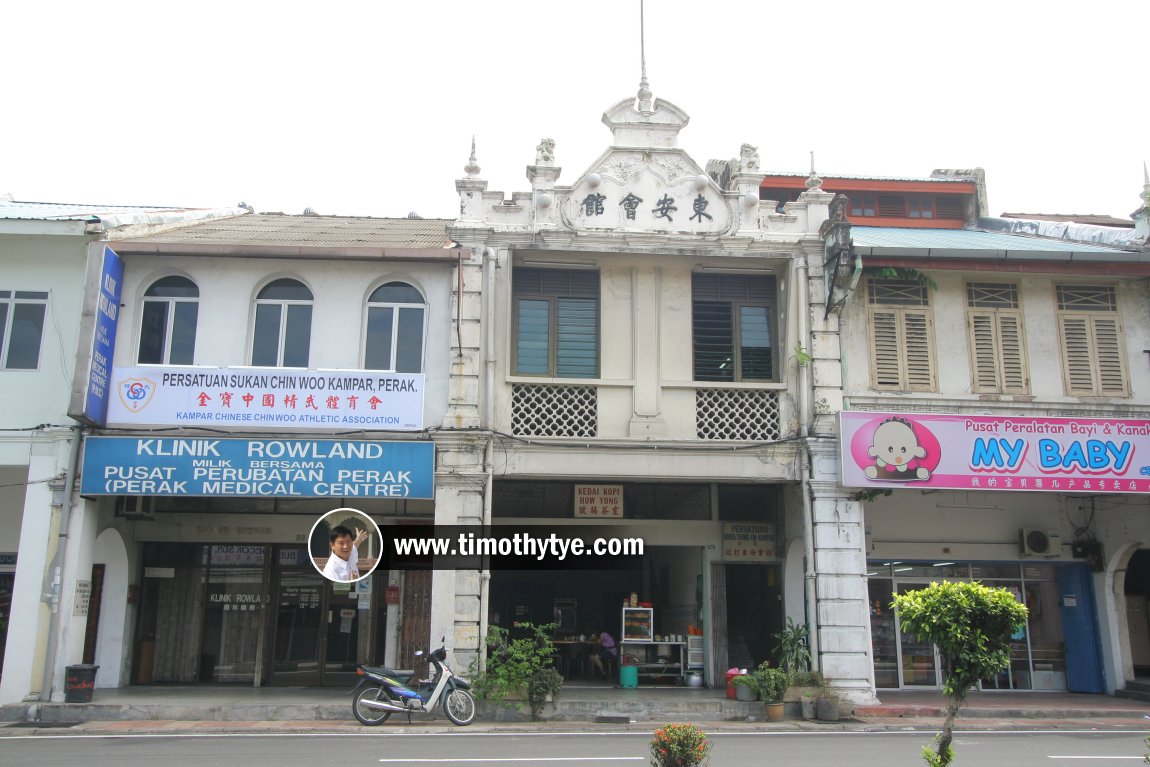 Kinta Toong On Association, Kampar
Kinta Toong On Association, Kampar  (28 December, 2006)
(28 December, 2006)
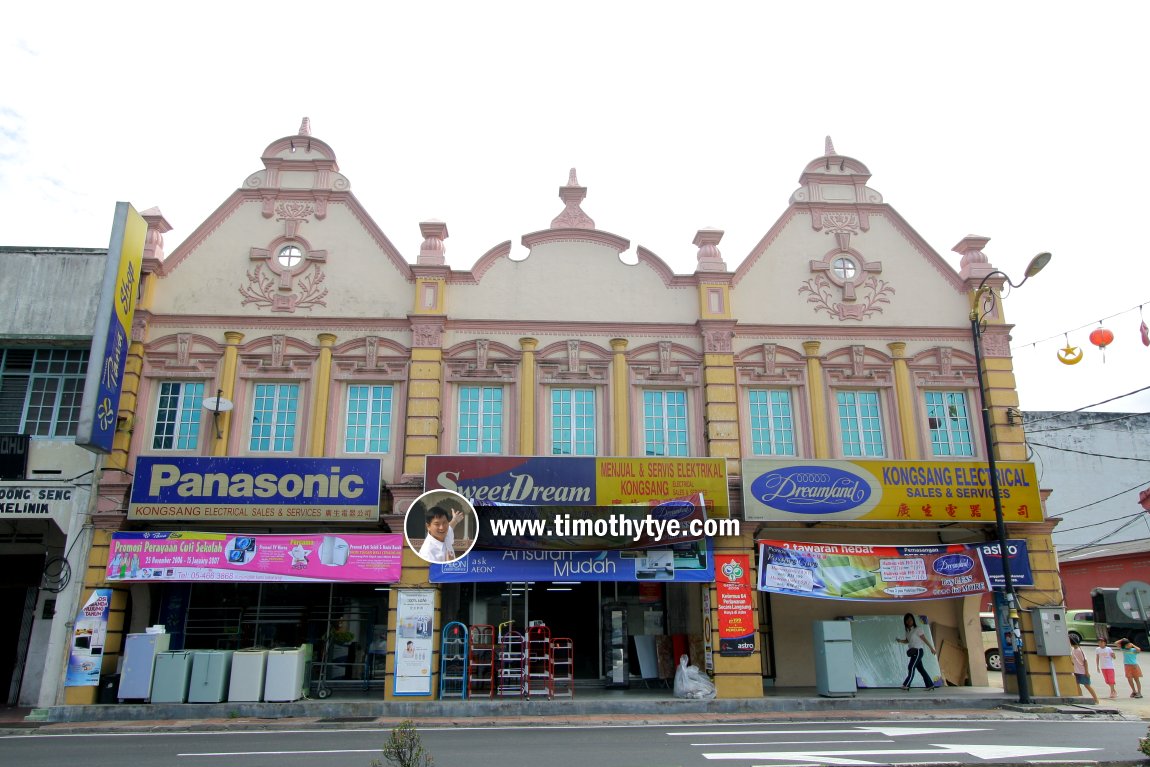 Wisma Tamil Methodist
Wisma Tamil Methodist  , Kampar, housing Kongsang Electrical Sales & Services. (28 December, 2006)
, Kampar, housing Kongsang Electrical Sales & Services. (28 December, 2006)
Kampar on Google Maps Street View
The main road of Kampar, Perak (Aug 2017)Getting to Kampar
Exit the North-South Expressway at Exit 132, the Tapah Interchange. Head towards Tapah town, and then take Federal Route 1 northbound past Tapah town to reach Kampar. If you are coming from the north, take Exit 135 at Simpang Pulai.Kampar is  on the Map of towns in Perak
on the Map of towns in Perak
Back to Perak mainpage; list of Towns in Perak and Towns in Malaysia
 Latest updates on Penang Travel Tips
Latest updates on Penang Travel Tips

Copyright © 2003-2025 Timothy Tye. All Rights Reserved.

 Go Back
Go Back